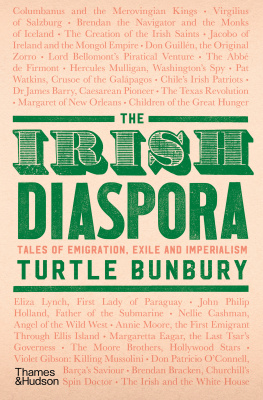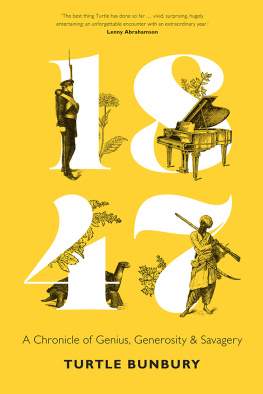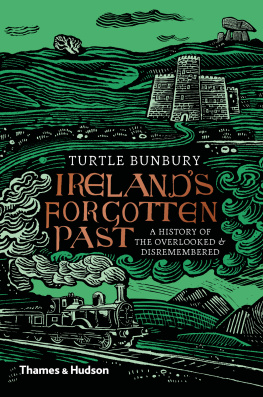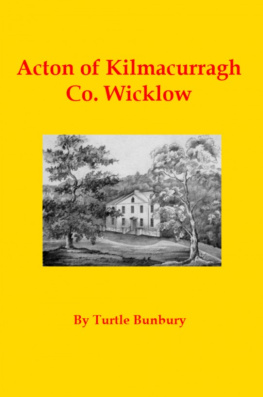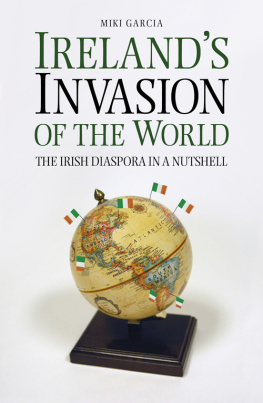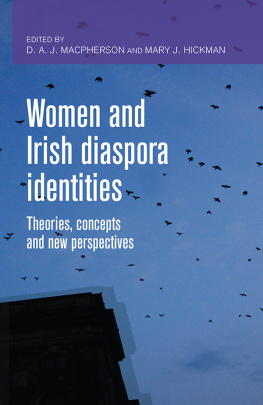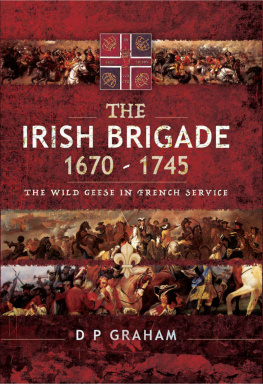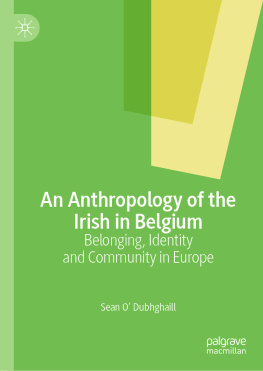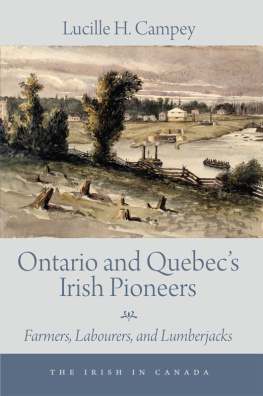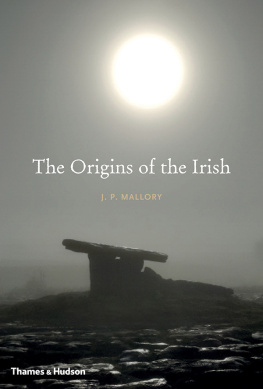



About the Author:
TURTLE BUNBURY is an author, historian, public speaker and TV presenter based in Ireland. His previous book, Irelands Forgotten Past, was described by Sebastian Barry, the Laureate for Irish Fiction, as a delicious and stirring atlas of Irishness.
His other books include The Irish Pub, Living in Sri Lanka and the award-winning Vanishing Ireland series. A frequent guest on Irish radio and TV, Turtle also appeared on the 2018 US series of Who Do You Think You Are?.
www.turtlehistory.com
Other titles of interest published by
Thames & Hudson include:
Irelands Forgotten Past: A History of the Overlooked and Disremembered
Turtle Bunbury
Magnum Ireland
Brigitte Lardinois and Val Williams
Sean Scully Walls of Aran
Sean Scully
Foreword by Colm Tibn
The Origins of the Irish
J. P. Mallory
Be the first to know about our new releases, exclusive content and author events by visiting
www.thamesandhudson.com
www.thamesandhudsonusa.com
www.thamesandhudson.com.au
CONTENTS
Irelands first inhabitants were born in other lands. We know not where but our current thinking is that they sailed up from more southerly latitudes in the millennia that followed the melting of the ice 12,000 years ago. Since that time, the island has been entirely surrounded by the salty seas. Until the twentieth century, the only way off was by boat. The hardy Neolithic people who lived 5,000 years ago took to the water in tree trunks that were hollowed out by human hand. The next wave of immigrants to Irish shores are thought to have arrived by boat from present-day Portugal. Archaeology provides tantalizing hints of their integration with other parts of Europe, including items of jewelry imported from eastern France in the late Bronze Age.
Profitable trade is, of course, one of the fundamental motives for travel. Among the most lucrative commodities in prehistoric times was mankind itself, the slaves who could be put to work fighting wars, rowing ships and building the cities and temples of the ancient world. It seems reasonable to suggest that some of the earliest members of the Irish diaspora were luckless souls captured and then sold to toil and die in foreign lands. Irelands slave industry certainly boomed during the centuries when the Romans occupied neighbouring Britain.
St Patrick, the man credited with introducing Christianity to Ireland, was himself a slave. Perhaps the greatest legacy of the church that he represented was the remarkable number of missionaries, ascetics and educators who set out from Irish shores to bring Christs revolutionary messages of love, forgiveness and humility into the perilous depths of Europe. The first of these holy men were the peregrinatio pro Christo (exiles for Christ), whose zealous wanderings would often bring them to a martyrs grave. The most famous was St Columba, one of the senior members of the U Nill dynasty, who is said to have gone into self-imposed exile to assuage his guilt after precipitating an internal war in Ireland that left thousands dead. In 563 he founded a monastic settlement on Iona, an island off the west coast of Scotland, which became the epicentre for an early Christian renaissance. As the Venerable Bede put it, Iona was a great school of Christian educationspecially designed to prepare and send forth a body of clergy trained to the task of preaching the Gospel among the heathen.
These gutsy souls travelled alone or in small groups, their scalps symbolically tonsured, or shaved from ear to ear. Some devoted their lives to proselytizing along the old trade routes and Roman roads. Others opted for seclusion and became hermits. For many more, their dream was to simply reach Rome, where the apostles Peter and Paul lay buried, or perhaps even to set foot in the Holy Land.
In the centuries after Columba, religion, trade and warfare would bring Irish people deep into Europe and, by the sixteenth century, westwards to the Americas. For many of the 40 million US citizens who claim some form of Irish ancestry today, their family story begins with the Great Hunger (), the cataclysmic period of starvation and disease that crucified Ireland between 1845 and 1850. Understandably, those who fled Ireland at this time felt deep bitterness towards the authorities that had presided over the catastrophe, a sensitivity that has intensified with the passage of time, leading to extreme accusations that the British government orchestrated a deliberate genocide.
The generation that arrived during and after the famine soon found themselves thrust into another maelstrom: the American Civil War (186165). At least 200,000 Irish-born soldiers served in the conflict, including the Waterford-born Young Ireland leader Thomas Francis Meagher (later the acting governor of Montana), Galway-born bandmaster Patrick Sarsfield Gilmore (author of the song When Johnny Comes Marching Home) and Louth-born Mary Hodgers (). Based in Chester, Pennsylvania, John Roach of Mitchelstown, County Cork, emerged as the most prominent shipbuilder in America by the end of the war.
My forefathers were the men who followed Cromwell and who shared in the defence of Derry, and in the victories of Aughrim and the Boyne, acknowledged US president Theodore Roosevelt, the descendant of a Scots-Irish immigrant from County Antrim. When he went on to praise the Scots-Irish as a bold and hardy race, he encapsulated the lesser-known truth for many millions of Irish settlers in the United States whose roots lay not in the misery of the Great Hunger but in the religious turmoil and oppression that ripped through Britain and Ireland in earlier centuries. During the 1700s, an estimated 200,000 Scots-Irish, or Ulster Scots as they are also known, sailed for North America, including the ancestors of at least sixteen US presidents and the grandparents of Sam Houston, the first president of Texas. Their forebears were among the thousands of families, predominantly Presbyterian, who originated in Scotland, settled in Ireland for a few generations and then crossed the Atlantic to North America. The Scots-Irish exodus coincided with the emigration of wealthier Irish Catholics such as Charles Carroll of County Laois, who moved to Maryland in 1688; his grandson and namesake was the sole Catholic signatory of the United States Declaration of Independence in 1776.
The story of the Irish abroad is a tale of empire as well as emigrants. Many of those who left Ireland for foreign shores did so under Britains imperial flag. The empire provided its citizens with the ideal opportunity to explore and exploit. The civil service that oiled it was thick with Irish men, and occasionally Irish women, throughout its hierarchy. Hundreds of thousands of Irish fetched up in Australia, including at least 48,000 convicts. New Zealand also experienced a high influx of Irish, initially from Leinster but later predominantly from Munster and Ulster. The 2016 census of Canada showed over 4.6 million Canadians claiming Irish descent over 15 per cent of the population. Three Fathers of the Canadian Federation were Irish, including the ill-fated Thomas DArcy McGee (). Seven viceroys of India were born in Ireland, as were at least seven governors of Hong Kong. As Britains first envoy to China, Antrim-born George Macartney led the initial attempt to open up trade with the Chinese Empire in 1792. Only two British prime ministers were born in Ireland, although David Cameron, Tony Blair, John Major and Jim Callaghan all have Irish ancestry.
Next page
